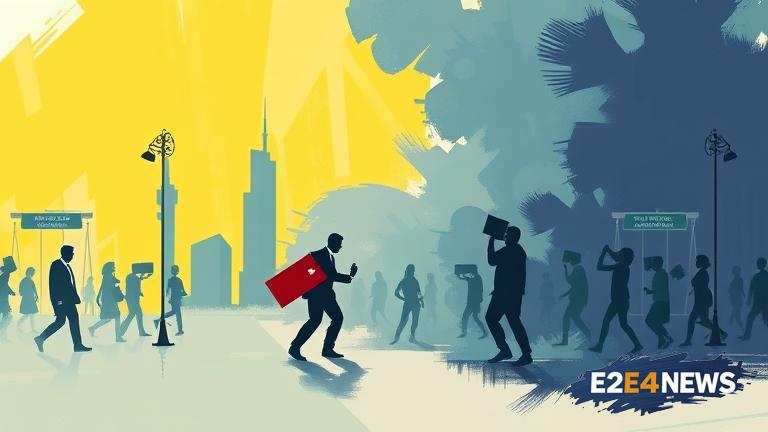The concept of social injustice has been a persistent theme throughout human history, with various forms of inequality and discrimination affecting individuals and communities worldwide. In George Orwell’s classic dystopian novel, 1984, the author depicts a totalitarian society where independent thought is discouraged and citizens are constantly surveilled. Similarly, in today’s world, social injustice can be seen in various forms, including racial and ethnic discrimination, economic inequality, and restrictions on freedom of speech and assembly. The rise of authoritarian regimes and the erosion of democratic institutions have further exacerbated these issues. Moreover, the widespread use of social media has created new avenues for the dissemination of misinformation and the suppression of dissenting voices. The consequences of social injustice can be severe, ranging from limited access to education and healthcare to increased poverty and violence. Furthermore, social injustice can also have a profound impact on mental health, with individuals and communities experiencing trauma, anxiety, and depression as a result of systemic inequality. In recent years, there has been a growing recognition of the need to address social injustice, with movements such as Black Lives Matter and #MeToo bringing attention to issues of racial and gender-based discrimination. However, despite these efforts, social injustice remains a deeply entrenched problem, requiring sustained and collective action to overcome. The role of governments, institutions, and individuals is crucial in this regard, as they must work together to create a more just and equitable society. This can involve policy changes, such as increasing access to education and healthcare, as well as grassroots initiatives, such as community organizing and advocacy. Additionally, the promotion of critical thinking and media literacy is essential in combating the spread of misinformation and promoting a more informed and engaged citizenry. Ultimately, the struggle against social injustice is an ongoing and complex one, requiring patience, persistence, and a commitment to creating a better world for all. By working together and supporting one another, we can build a more just and equitable society, where everyone has the opportunity to thrive. The fight against social injustice is not just a moral imperative, but a necessary step towards creating a more peaceful and prosperous world. As we move forward, it is essential that we prioritize the values of equality, justice, and human rights, and work towards a future where everyone can live with dignity and respect. The legacy of 1984 serves as a warning, reminding us of the dangers of totalitarianism and the importance of protecting our freedoms and promoting social justice.
